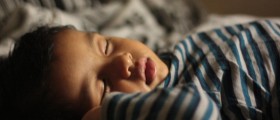
Sleeping disorders are medical conditions which can affect human beings or animals. Even though these disorders can be mild and not lead to serious problems, in some cases sleeping disorders can interfere with one's everyday activities, along with mental and emotional functioning.
Many factors can trigger sleeping problems in people. Sometimes, the causes may not be visible while, in some other cases, these culprits can be defined without problems. Usually, when the cause behind this disorder cannot be defined, the condition is referred to as insomnia. If there are underlying problems leading to sleeping disorders, there are great chances that bruxism, night terrors or some other mental and medical issues are behind the condition.
Who Can Have a Sleep Disorder?
Many times, people with sleeping disorders and narcolepsy are misdiagnosed for being depressed, having poor sleeping organization and lacking physical activity. Even epilepsy is a common form of misdiagnosis.
Usually, about 15 years pass from the moment of appearance of symptoms until narcolepsy itself actually gets diagnosed. In some cases, people suffer from cognitive, educational, psychological and occupational problems hand-in-hand with narcolepsy.
Unfortunately, we are yet to find out the reasons behind this problem through thorough analysis and testing, since many factors behind narcolepsy are unknown. Namely, some people with narcolepsy may suffer from sleepiness during the day or during specific times while others may suddenly fall asleep randomly, regardless of the time or situations.
Narcolepsy is a Chronic Sleep Disorder
This condition can also be referred to as dyssomnia, leading to uncontrollable urge for falling asleep in inappropriate conditions. So, people suffering from this problem may fall asleep during work or while taking part in traffic. Once a person falls asleep during this time, he/she usually enters REM phase within 10 minutes. Bear in mind that, normally, people enter this stage after at least 90 minutes of hard sleep.
Narcolepsy may appear together with cataplexy, a condition manifesting through muscular weakness due to exposure to strong emotions. Thus, during the occurrence of narcolepsy symptoms, one's jaw might drop or his/her knees might become weak, leading to a whole body collapse. Hence, narcolepsy symptoms may be slurred speech, double vision or concentration issues.
Nevertheless, some of the reasons behind narcolepsy may be foreign organisms in the body of the sufferer, such as viruses. Therefore, the causes are not always genetic and unexplainable.
One of the main signs of narcolepsy is excessive daytime sleepiness or EDS, regardless of the total amount of sleep a person experiences on a daily basis. The urge for sleeping may appear suddenly, making one incapable of resisting it. Rather, the affected person takes several naps during the day, feeling refreshed for a short while afterwards, before experiencing sleepiness anew. This excessive sleepiness and all the naps usually interfere with the normal sleeping patterns, making one wake up often during nighttime and experience sleeping problems in some cases.
Other symptoms of narcolepsy are the above mentioned cataplexy, along with sleep paralysis, hypnagogic hallucinations and certain automatic behaviors. Some signs of narcolepsy can even be laughter, anger, surprise, inability to speak properly or experiencing unexplainable fear, these states of mind lasting for a couple of minutes.
However, only 25% of people suffering from narcolepsy experience the presence of several symptoms at the same time. Usually, the sleep paralysis and hypnagogic hallucinations are the rarest symptoms of narcolepsy.
Furthermore, narcolepsy is a condition which commonly evolves from long-term insomnia or some other forms of sleeping disorders.
How Many People Suffer from Narcolepsy?
Basically, anyone can suffer from some form of sleeping disorders. In fact, 3 million people all over the world suffer from some kind of a sleeping disorder, predominantly narcolepsy. In the US only, there are 200,000 cases of people suffering from this condition.
Yet, statistically, narcolepsy affects both men and women, regardless of their age, even though the symptoms are known to be most common and prominent during adolescent periods. According to different scientific data, narcolepsy is known to be related to genetics, running in families, since up to 12% of people suffering from this problem have a relative who shares their fate. Today, one in every 2,000 people suffers from a certain form of narcolepsy, this condition leading to numerous cases of absence from schools and work.
All in all, narcolepsy is a fairly wide-spread condition which manifests through sleeping problems. Basically, narcoleptic people cannot control their sleeping patterns, feeling drowsy most of the time, being prone to numerous naps during the day, without feeling refreshed for longer than a couple of minutes. Therefore, the drowsiness may trigger sleeping in awkward moments, resulting in various lifestyle problems, risking one's well-being and possibly life.
Thus, the impact which narcolepsy can have on one's life can be quite severe and seeking medical assistance is an advised step to take, having the reasons behind this condition diagnosed and treated timely.

















Your thoughts on this
Loading...